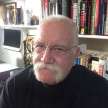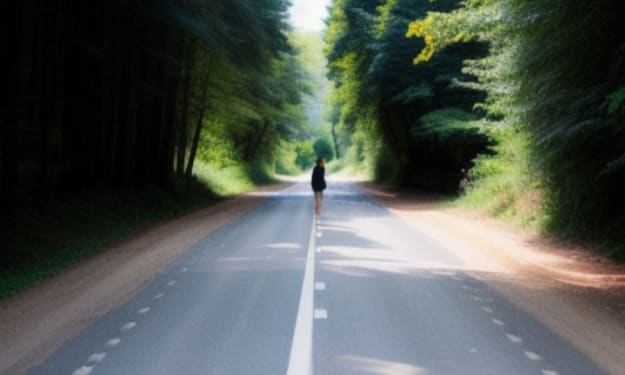Secret City of the Sun
Ch. 2: Charleston & Belle Boyd

Chapter 2: Charleston and Belle Boyd
My introduction to Charleston, South Carolina, came in the form of a dramatic incident, as our steamer approached the harbour mouth from the northeast. It was mid-morning, as Dane and I were gathered with several other passengers in a small lounge near the galley, where a steward was serving tea. The regular rhythm of the steam engines, and that of the side wheels in the water, were suddenly punctured by a sharp, metallic bang, and a shuddering through the hull of the ship that almost tossed the tea samovar off its table.
There were gasps of astonishment, and several of us went to the door to discover the source of the noise. Captain Garrett, a somewhat dour southerner, was already at the starboard rail with his first officer.
“No harm done, gentlemen. We are passing by the wreck of a blockade ship that Mister Maillefert is blowing apart. He seems to think it unnecessary to warn us of the explosion with a flag.”
I looked off to starboard. A massive barge stood off some distance. Behind it was the low-lying coast of an island, about five miles to the west. The water was boiling midway between our ship and the barge, where men were toiling over masses of twisted iron.
The ocean bottom was spewing up pieces of shattered wood, and items of clothing, including a sailor’s pea coat. The wood floated, while the clothing twisted in the bubbles and roiling water, sinking once again into the grey water.
Garrett was grim faced. “There are bodies of Yankees down there. They don’t give much of a damn about defiling the remains of their own kind, just get a few dollars’ worth of scrap. Yankees!” He turned in disgust, and walked back to the wheelhouse.
Dane and I walked back to the cabin. “Do you share the Captain’s opinion of Northerners, Dane?”
“Walker, many of the men I fought against, and with, believed they were fighting and dying for a just cause. But the financiers and the Governments that sent them to war have laid the foundation for generations of enmity with their propaganda.”
He lapsed into silence. I let him continue to the cabin, and stood by the rail, as the steamer turned due west into the Charleston harbour mouth. Close by our ship, on the northern side of the channel, I could see three blockade-runners smashed to almost unrecognizable wreckage by what must have been a fierce bombardment. To the south, on the opposite bank, the turrets of two monitor class warships protruded from the waves. The carnage must have been terrible. As we approached Charleston, it was plain that the scars of the war were still fresh, despite the intervening five years. I had much to do for my new employer when we docked at Charleston. I also had my little task for Prestwicke, that is, to find the enigmatic Belle Boyd, and secure the curious information that she was carrying.
Dane’s home was an imposing mansion on Oyster Point. Its fourth storey, beneath a mansard roof, now had the distinction of providing accommodation to a massive fragment of a cannon. The Confederate forces destroyed it, as they finally yielded the city to Federal troops. The explosion tossed the fragment of breech and barrel through the rooftop, where, despite its weight of some 2000 pounds, it was deemed best left in place. Dane left to me the details of equipping the expedition from a meticulously completed list. An additional task was to find a vessel able to take us to Panama, in the fastest possible time.
Dane had instructed me to consult with a certain Federal navy officer, named Schwartz, who frequented one of the taverns on East Bay Street. He proved to be a big, easy going man, with one eye, who insisted on buying me a beer as we sat and talked.
“If you want speed on the water, Mister McCoy, there is but one way to get it, Charles Berry.”
Berry, I learned, was the one blockade-running captain in Charleston who never lost a cargo, or a ship, for that matter, to the Union Navy. He had been in Nassau, New Providence, when the war ended, sitting there with a ship called The Wild Dayrell.
“He sold his cargo in Nassau and came home, and though I often wish I’d caught him at sea then, I wouldn’t begrudge the man some business today. He was a gallant enemy on all accounts, and your man if you want to get somewhere fast.”
I found Berry in a small house off Church Street, sitting in the afternoon sun in a small walled garden that reminded me of the back streets of London’s East End or of a Paris arrondissement.
He received me, without knowledge of my business. He was a small man, barely taller than the middle of my chest, with a shock of greying hair and a round face that smiled readily. He seemed pleased that the Yankee naval officer had sent me.
“That son-of-a-gun tried to shoot me dead with a pistol from the bow of the Vanderbilt seven years ago. We’d just cleared the harbour, with more cotton than the Government had sent out on a new vessel in years. I do recall comin’ through a fog bank and cuttin’ across his stern. He was as surprised as I was, and all Schwartz could think to do was draw his pistol and fire at us. I personally stood on the fantail of the Wild Dayrell and invited him to shoot me. After a few shots, I drew my pistol, and he stood still for me to take my aim. Of course, the distance was far too great, but after we emptied our guns, we saluted each other, and I disappeared into the fog. The Vanderbilt tried to chase me for two days, but she was no match for my ship. I would not go so far as to say we are friends, but there is a certain amount of mutual respect there now.”
I explained to my host that I needed to get Dane and his party and equipage to Panama as swiftly as possible, and from thence across the Isthmus to the Pacific and on to Cali in Peru. I knew Berry’s ship was sitting idle in the Stono River, not far from Charleston. So I was not surprised when he invited me to inspect it, later that day, after which we could conclude an agreement and begin loading at the Charleston waterfront.
With this piece of business underway, I had the matters of my new master well in hand. I decided, therefore, to begin my second assignment, the search for the mysterious Belle Boyd.
Following Prestwicke’s instructions, I went to a row of cotton factors’ offices on the harbor front. I was soon sitting in the office of James Whaley. The office was strangely decorated, the walls and ceiling being painted a dark, royal blue colour. The furnishings were of dark mahogany and black overstuffed leather. The factor himself was young, and the left side of his face had been smashed by a piece of shrapnel, or perhaps a minné ball’s glancing blow.
He grinned, as he noticed me taking in the details of the furnishings. I gave him my card. “I represent a mill in England, Mister Whaley. We are particularly interested in some long, staple cotton from Bleak Hall, that is, if the Baynards managed a good yield last year.”
The grin lessened a little, as Whaley looked me over now with more than casual interest. “The Baynards own Prospect Hill, Mister McCoy. The Townsend family owns Bleak Hall and besides, the only good cotton we have on hand is short staple from above Augusta.”
The exchange was just as Prestwicke indicated it would be. Whaley rang a small bell on his desk. Moments later, the door was opened by a huge African wearing a curious amulet of dark wood, with red and black beads hanging around a powerful neck. He bowed to Whaley and to me.
“Sample, suh?”
“Yes, the short staple Augusta shipment that just arrived. Have the new hand bring it up, Luther.”
The man look directly at me, smiled, then turned and left. When the door closed, Whaley arose from the desk, poured two cordials into crystal glasses on the credenza, and handed one to me.
He spoke quietly. “I have just acquired a new hand, Justus Begby, who has been planted here by the Federal authorities. Since I am being watched, you are already under suspicion, so we may as well make sure he understands you are nothing more than a mill agent. The samples we’ll show you are slightly yellow, not as clear and white as they should be. The dark walls and furnishings make almost any cotton appear whiter than it is, trick of the eye. Also, the cotton is a little damp from the river voyage down the Savannah, which means that the bales will weigh heavier now than when they are dry. Make a show of catching me out on these points.” He turned away, as the door opened. The man Begby was carrying a layer of pressed cotton from a bale in his arms. He was stocky and powerfully built, like most of the blacks working on the waterfront. His face was peppered with a pattern of tribal scars that underscored an openly suspicious expression.
“This is very fine cotton Mister McCoy. We have two thousand bales on hand and five hundred more left Petersburg in pole boats, two days ago.”
As Whaley spoke, he threw aside the wooden shutters covering the office window. The afternoon sun burst in through the south facing glass and the cotton exploded into white brilliance. Whaley peeled the pressed layers apart, placing them in my hands. I felt the cotton, sniffed it, turned, and looked at it, away from the sunlight.
I turned back to Whaley and Begby.
“I am afraid, sir, your ‘fine’ cotton is not quite of the quality I am looking for. I detect a yellow cast, and it smells faintly of river water. I need good colour and fair weight. Perhaps you have something else to show me?”
Whaley grimaced, took the sample from my hand, and passed it back to Begby.
“You appear to know your cotton well, Mister McCoy. This is all that is on hand, unfortunately. Perhaps we can negotiate a more advantageous price for your mill, and offer you some personal inducement at the same time?”
Begby’s eyes darted from Whaley to me. His hands were thick, fingers short, stubby, and scarred. I noticed a heavy, ridged callus on the inside pad of the thumb on his left hand. He took the sample from me, and left the office. I sat back in the leather chair in front of Whaley’s desk
. “So, Mister McCoy, you’re bound for Panama, in Captain Berry’s blockade runner?” Whaley spoke in a hushed voice. I was not surprised that he already knew. The news must have spread quickly through the city, and so I came straight to the point.
“Yes, and, somewhere along the way, I am supposed to convey Miss Boyd’s compliments to Her Britannic Majesty’s Government.”
“Miss Boyd is currently being sought by the Federal authorities. As you can imagine, the Yankees are not getting much assistance from the local citizenry. I will get word to you tomorrow, aboard the Wild Dayrell, concerning a meeting with Miss Boyd. You both must be careful. Whatever it is she has for the British Government, it is something the Yankees are more than prepared to kill for.”
He walked to the office door and opened it. Our brief ‘negotiation’ was over. Begby watched me leave, a hint of a smirk on his lips. I wondered if he had been fooled. I took a circuitous route around the old town, finally hiring a carriage for the journey out to the Stono River, south of the City, where I was to inspect the Wild Dayrell.
Swinburne and his party were due to arrive by rail from Augusta, later that afternoon. I sent a note to the station on the rail line from Hamburg providing details on where his party was to load their effects, the next day. I then hired a horse and headed out to inspect Berry’s ship. While I was no landlubber, I was not prepared for the Wild Dayrell. She was breath taking. The side-wheeler sat low in the water, her lines sleek and smooth. She was a remarkable relic of the savage war between the North and South. Some two hundred feet long, and nearly thirty wide, she sat in the water like a graceful swan. The deck was almost clean, except for two schooner-rigged masts and rakishly angled stacks. The lines of the hull were broken only by the housings for the two side wheels. She was painted, for the most part, in a uniform light grey colour.
A small cabin was tucked far in the stern, and that was where I found Berry, standing by the rail and watching me, as I made my inspection. “Five hundred tons, 230 feet long 26 in the beam, and a top speed the Yankees still can’t match.”
I signed the contract with Berry, as Dane’s agent, and another step was taken toward the beginning of my Peruvian adventure.
“Can you be at the Customs House wharf tomorrow, Captain Berry?” “We can be there at the crack of dawn, Mister McCoy.”
Chapter Three: The Black Widow. Upload: 11/14/21
About the Creator
Mark Newell
Mark Newell is a writer in Lexington, South Carolina. He writes historical action adventure, science fiction and horror. These include one published novel, two about to be published (one gaining a Wilbur Smith award),and two screenplays.






Comments
There are no comments for this story
Be the first to respond and start the conversation.